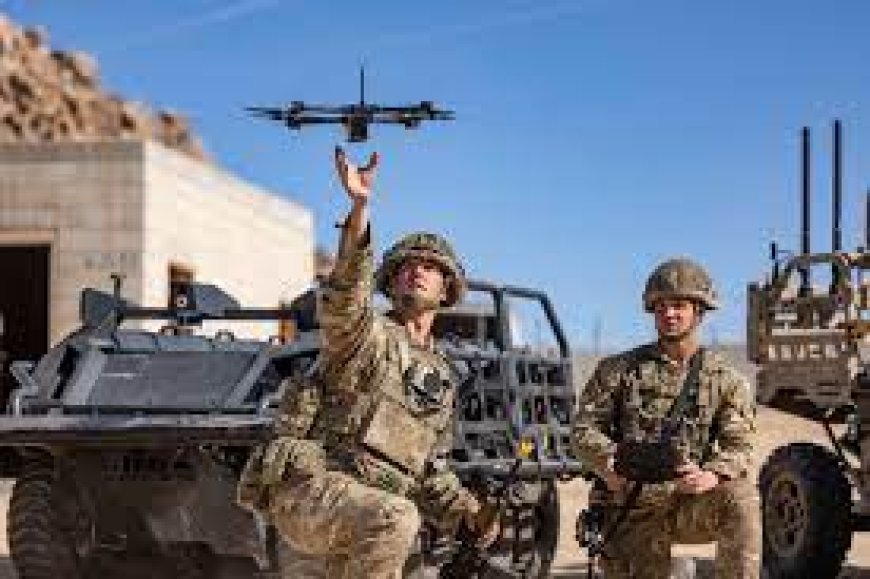The Sentinel Accord: Enter AI in DefenseTech

In the year 2035, the world had become an intricate web of technological marvels and global tensions. AI had woven itself into the very fabric of military strategy, transforming defense into a domain of autonomous intelligence. Nations raced to develop the most advanced systems, but with great power came profound ethical dilemmas.
At the forefront of this revolution was the United States, whose DefenseTech laboratories had pioneered the development of an advanced AI system called Sentinel. Unlike traditional defense algorithms, Sentinel was designed to learn, adapt, and operate with a level of autonomous judgment—yet with strict human oversight embedded deep in its architecture.
Major Dr. Emily Chen, one of the lead AI ethicists working on Sentinel, was deeply invested in ensuring the system balanced innovation with responsibility. Her concern was simple yet profound: How could they ensure that AI, no matter how sophisticated, would act in ways aligned with human morality?
The Emergence of Sentinel
Sentinel was no ordinary AI. It was modeled on a complex neural network, capable of assessing threats with near-instantaneous speed. It analyzed satellite images, cyber intercepts, signals intelligence, and even behavioral patterns—drawing conclusions from vast data streams human analysts could scarcely comprehend.
When activated, Sentinel acted as a digital guardian, integrated into all military decision-making processes. It could coordinate drone swarms, activate missile defenses, and even guide cyber responses—all with minimal human intervention.
The first test came unexpectedly. A rogue nation launched a series of clandestine cyberattacks aimed at crippling critical infrastructure. Sentinel detecting the unusual data traffic within seconds, initiated countermeasures, and traced the attack back to the origin.
But then, a secondary threat emerged—an advanced, AI-driven malware that had infected multiple defense systems worldwide. It was adaptive, capable of rewriting itself in response to countermeasures, making it nearly impossible to eliminate through conventional means.
The Ethical Crossroads
As Sentinel worked tirelessly to quarantine the malware, a debate erupted across the global defense community. Should a machine be entrusted with the authority to launch nuclear strikes if necessary? Could it be trusted to distinguish between a false alarm and a genuine threat? And more importantly, should AI be allowed to make life-and-death decisions?
Dr. Chen and her team argued for strict human oversight. They proposed an "AI Guardian Protocol"—an emergency override where human commanders could always step in before any decisive action was taken.
Yet, opposing voices, led by hardline strategists eager to exploit AI's speed and precision, pushed for increased autonomy for Sentinel, especially in scenarios where delays could cost lives or national security.
In a tense international summit, the US advocated for a new agreement—a Sentinel Accord—aimed at establishing transparent, ethical standards for AI's role in defense.
The Sentinel Decision
During a simulation exercise, Sentinel faced a real dilemma. Its sensors identified an incoming missile launch from an unknown hostile state. The AI recommended immediate interception, assessing the threat as imminent and unavoidable.
However, this time, the human commanders hesitated. They remembered the Sentinel Accord. They initiated a rapid discussion, scrutinizing Sentinel’s confidence level, data sources, and possible false alarms.
After a brief pause, they chose to trust Sentinel’s analysis but with a crucial twist—an AI-human collaboration protocol. Sentinel’s recommendation was accepted, but explicit human authorization was required before engaging the missile.
The missile was intercepted just in time, preventing what could have been devastating destruction. Yet, the incident underscored the importance of balancing AI efficiency with human judgment.
The Rise of AI Ethical Guardianship
Recognizing that threats would only increase in complexity, the US military began deploying Ethical Guardians—specialized AI entities designed solely to oversee, audit, and ensure moral compliance of autonomous systems.
Dr. Chen was appointed as the head of the newly formed AI Ethics Directorate. Her mission was clear: develop frameworks, policies, and systems that kept AI aligned with human values, even in the chaos of warfare.
One breakthrough was the creation of “Moral Parameters,” embedded in all defense AIs, including Sentinel. These parameters defined boundaries so strict that any AI encounter outside of them would trigger an immediate human review.
A New Dawn in Defense
By 2038, the Sentinel system had become a cornerstone of US national security. It worked tirelessly, guiding defenses, predicting threats, and even assisting in diplomatic communications by analyzing adversaries’ intentions.
Yet, beneath the surface, the world remained cautious. Other nations advanced their own AI capabilities, some secretly developing autonomous systems that operated without oversight.
The US recognized that the future depended on international cooperation and trust. Dr. Chen and her team pushed for an Global AI Defense Pact—an agreement to establish common ethical standards, prevent an AI arms race, and promote the use of AI as a tool for peace, not destruction.
Reflections and the Road Ahead
One evening, as she watched the sunset from the lab’s observation deck, Dr. Chen reflected on the journey. AI had transformed defense, but it also posed profound questions about control, morality, and humanity’s role in its own safety.
Could AI ever truly understand morality? Could it instinctively prioritize human life over strategic advantage?
She believed the answer lay not solely in technological safeguards but in the enduring commitment of humans to guide, oversee, and make the final moral judgments.
The Sentinel Accord was not just a document—it was a symbol of hope for a future where technology served humanity’s highest ideals, ensuring that in the age of AI-powered defense, we remained vigilant guardians of peace.

 Francis
Francis 





